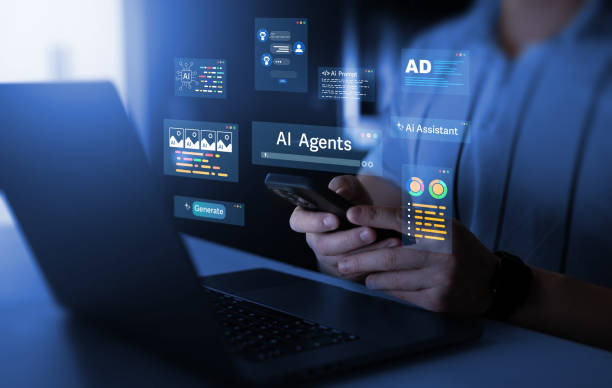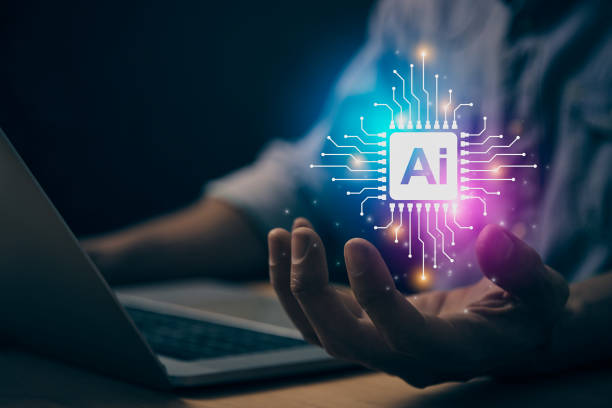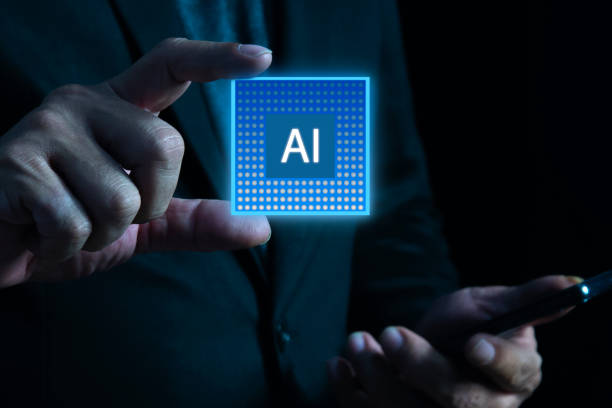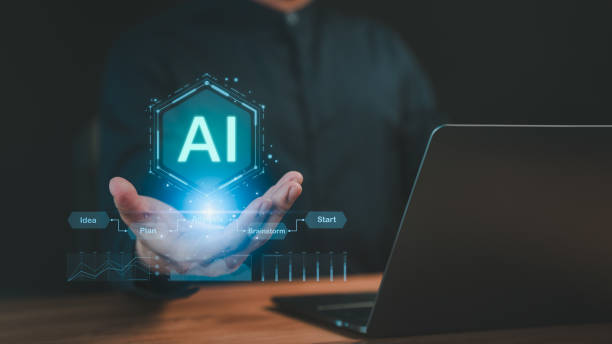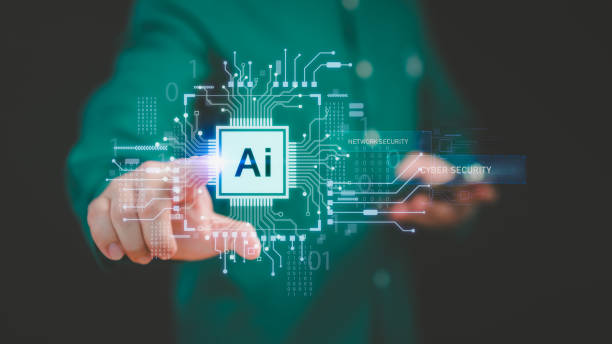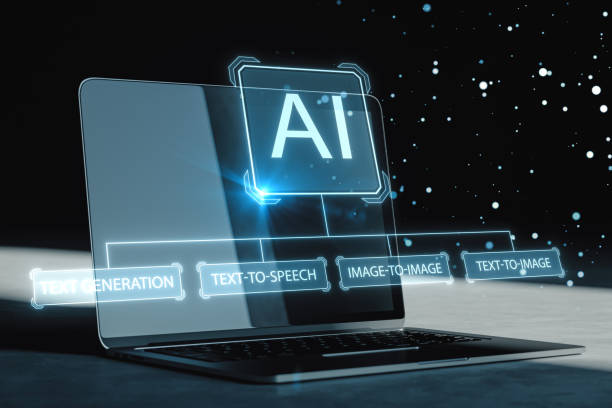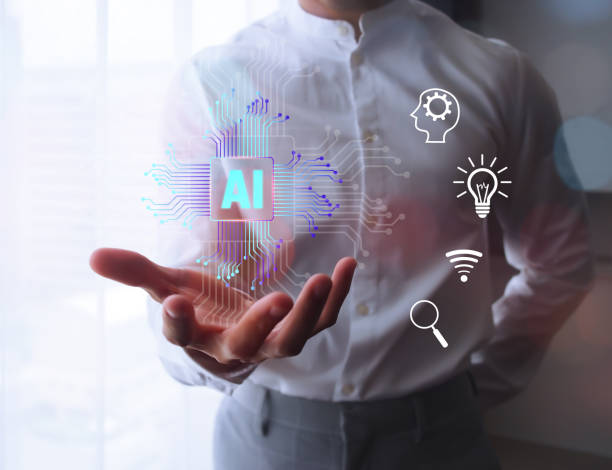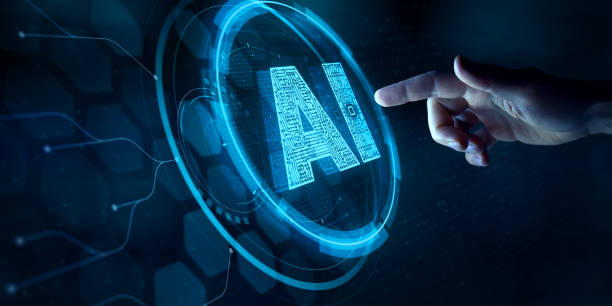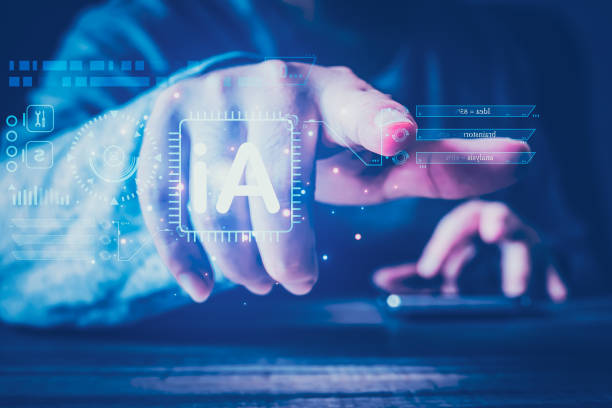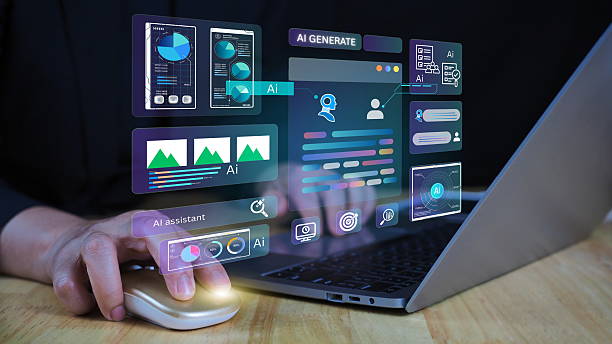`
What is Artificial Intelligence and What Impact Does it Have on Jobs?
#Artificial_Intelligence (AI) is rapidly becoming a transformative force in various industries. With its ability to automate tasks, analyze data, and provide innovative solutions, it is redefining jobs. The impact of AI on the future of AI jobs is extensive, creating both opportunities and challenges for the workforce. In this chapter, we will explore the nature of AI and how it impacts job prospects. In its simplest definition, AI is a branch of computer science that deals with building machines capable of performing tasks that typically require human intelligence. These tasks include learning, problem-solving, decision-making, and pattern recognition. By using algorithms and machine learning models, AI can analyze vast amounts of data and extract patterns that are not discernible to humans. This capability has made AI a powerful tool in various fields, including medicine, finance, manufacturing, and transportation.
Are you unhappy with the low conversion rate of visitors to customers on your online store?
Solve this problem forever with professional online store design by Rasaweb!
✅ Increase visitor-to-customer conversion rates
✅ Create an excellent user experience and build customer trust
⚡ Get free consultation
Jobs at Risk and New Jobs Resulting from AI
As AI expands, some jobs are at risk due to automation. Repetitive and routine tasks that require low cognitive skills are particularly vulnerable to replacement by AI. These jobs include telephone operators, data entry clerks, and some manufacturing workers. However, AI also creates new job opportunities. The development, implementation, and maintenance of AI systems require skilled professionals. Jobs such as data scientist, machine learning engineer, and AI specialist are on the rise. In addition, AI can assist humans in performing their tasks, increasing productivity and efficiency. For example, doctors can use AI to diagnose diseases more accurately, and teachers can use AI to provide personalized education to students. The future of AI jobs will be very bright in these areas. It is important for the workforce to prepare for the changes brought about by AI. This preparation includes acquiring new skills, adapting to the new work environment, and embracing technology. Governments, organizations, and individuals must work together to ensure that the workforce is equipped for the future world of work.
Skills Needed to Succeed in the Age of AI
To succeed in the age of AI, individuals must develop a set of technical and soft skills. Technical skills include knowledge of programming, data analysis, and machine learning. Soft skills include critical thinking, problem-solving, creativity, and communication skills. #Critical_thinking_skills are essential for evaluating information, identifying biases, and making informed decisions. Problem-solving skills are needed to identify and solve complex problems. Creativity skills are needed to generate new and innovative ideas. Communication skills are important for effective communication with colleagues, customers, and other stakeholders. The future of AI jobs depends on individuals who possess these skills. In addition to these skills, individuals must have the ability to learn continuously and adapt to change. Technology is rapidly advancing, and individuals must be prepared to learn new skills and adapt to the new work environment. This table shows some of the skills needed to succeed in the age of AI.
| Skill | Description |
|---|---|
| Programming | Ability to write code to create and implement AI systems |
| Data Analysis | Ability to collect, analyze, and interpret data |
| Machine Learning | Knowledge of machine learning algorithms and models |
| Critical Thinking | Ability to evaluate information and make informed decisions |
| Problem Solving | Ability to identify and solve complex problems |
| Creativity | Ability to generate new and innovative ideas |
| Communication Skills | Ability to communicate effectively with others |
Industries Most Affected by AI
AI is currently being used in various industries, but some industries are most affected by this technology. These industries include: Healthcare: AI can be used to diagnose diseases, develop new treatments, and provide personalized care. Finance: AI can be used to detect fraud, manage risk, and provide personalized financial services. Manufacturing: AI can be used to automate manufacturing processes, improve quality, and reduce costs. Retail: AI can be used to provide personalized product recommendations, improve customer experience, and optimize the supply chain. Transportation: AI can be used to develop self-driving cars, improve traffic, and reduce accidents. The future of AI jobs is very bright in these industries, creating many job opportunities. These industries are investing heavily in AI and are looking for skilled professionals who can implement and manage this technology. However, it is important to remember that AI will not replace humans, but will help humans to do their jobs better and more efficiently.
Do you dream of a thriving online store but don’t know where to start?
Rasaweb is your comprehensive online store design solution.
✅ Attractive and user-friendly design
✅ Increase sales and revenue⚡ Get free consultation
Education and Preparation for Future Jobs in the Field of AI
Education and preparation for future jobs in the field of AI is very important. Individuals should become familiar with AI concepts from a young age and acquire the skills necessary to succeed in this field. AI education should be offered at various levels, from basic education in schools to specialized education in universities and educational centers. In addition to formal education, individuals can increase their knowledge of AI through online courses, books, and other educational resources. #Job_readiness for the future of AI jobs includes acquiring technical and soft skills. Individuals should develop programming skills, data analysis skills, machine learning skills, critical thinking skills, problem-solving skills, creativity skills, and communication skills. In addition, individuals must have the ability to learn continuously and adapt to change. Governments, organizations, and individuals must work together to ensure that the workforce is equipped for the future world of work. This collaboration includes investing in AI education, providing educational and skills opportunities, and creating an environment in which individuals can learn new skills and practice adapting to change.
Click here to preview your posts with PRO themes ››
Ethical and Social Challenges of AI in the Labor Market
In addition to its many benefits, AI also poses ethical and social challenges. One of the most important challenges is the issue of #bias_in_AI. AI algorithms are trained based on data, and if the data is biased, the algorithms will also be biased. This bias can lead to discrimination in hiring, promotion, and other employment-related decisions. Another challenge is the issue of privacy. AI systems need to collect and analyze individuals’ personal data, and this can create privacy concerns. In addition, AI can lead to job losses, and this can have significant social and economic impacts. To address these challenges, it is necessary to put in place appropriate laws and regulations. These laws and regulations should ensure that AI is used ethically and responsibly, and that individuals’ rights and interests are protected. The future of AI jobs depends on how these challenges are managed. This table shows some of the ethical and social challenges of AI in the labor market.
| Challenge | Description |
|---|---|
| Bias in AI | AI algorithms can be biased if they are trained on biased data. |
| Privacy | AI systems need to collect and analyze individuals’ personal data, and this can create privacy concerns. |
| Job Loss | AI can lead to job losses, and this can have significant social and economic impacts. |
The Role of Governments and Organizations in Managing the Transformations Resulting from AI
Governments and organizations have an important role to play in managing the transformations resulting from AI. Governments can ensure that AI is used ethically and responsibly, and that individuals’ rights and interests are protected by enacting appropriate laws and regulations. Organizations can help individuals prepare for future jobs in the field of AI by providing educational and skills opportunities. The future of AI jobs depends on close cooperation between governments, organizations, and individuals. This cooperation should be aimed at creating a fairer, more sustainable, and more prosperous world of work. In addition, governments and organizations should invest in AI research and development to guide this technology towards positive goals.
Click here to preview your posts with PRO themes ››
Key Trends in AI Development and Their Impact on Jobs
AI is rapidly advancing, and several key trends are shaping this technology. One of the most important trends is the increase in computing power. With increasing computing power, more complex algorithms can be trained, and more powerful AI systems can be created. Another trend is the increasing access to data. Data is the fuel of AI, and with increasing access to data, more accurate AI systems can be trained. The third trend is the development of new algorithms. Researchers are constantly developing new algorithms that improve the performance of AI systems. These trends will have a significant impact on jobs. With increased computing power, access to data, and the development of new algorithms, AI will be able to perform more complex tasks, and this could lead to the loss of some jobs and the creation of new jobs. The future of AI jobs is influenced by these trends. To adapt to these changes, individuals need to learn new skills and practice adapting to the new work environment.
Does your current company website present a worthy image of your brand and attract new customers?
If not, turn this challenge into an opportunity with Rasaweb’s professional corporate website design services.
✅ Significantly improves the credibility and image of your brand.
✅ Paves the way for attracting new leads and customers for you.
⚡ Contact Rasaweb now for free and expert advice!
Successful Case Studies in the Use of AI in the Workplace
There are several case studies that show how AI can be used successfully in the workplace. For example, Amazon uses AI to automate warehousing processes, improve the supply chain, and provide personalized product recommendations. Google uses AI to improve search results, provide translation services, and develop self-driving cars. IBM uses AI to provide healthcare services, improve cybersecurity, and develop business solutions. These case studies show that AI can help companies increase their productivity, reduce costs, and improve customer experience. The future of AI jobs becomes clearer with these examples. However, it is important to remember that the successful use of AI requires careful planning, proper implementation, and continuous management. Companies should clearly define their goals and develop an appropriate strategy to achieve these goals before implementing AI.
Predicting the Future of Jobs with AI
It is difficult to accurately predict the future of AI jobs, but based on current trends and studies, some scenarios can be envisioned. In general, AI is expected to have a significant impact on the labor market. Some jobs will be lost due to automation, but new jobs will also be created. Jobs that require high technical skills, critical thinking, problem-solving, creativity, and communication skills will be more important in the future. In addition, AI is expected to help humans do their jobs better and more efficiently. AI can automate repetitive and routine tasks, allowing humans to focus on more complex and creative tasks. To adapt to these changes, individuals need to learn new skills and practice adapting to the new work environment. Governments and organizations should also play an active role in managing these transformations and ensuring that the workforce is equipped for the future world of work.
Click here to preview your posts with PRO themes ››
Frequently Asked Questions
| Question | Answer |
|---|---|
| What impact will AI have on the future labor market? | AI automates repetitive jobs, but at the same time, it will create new and more complex jobs in areas such as the development, maintenance, and training of AI systems. |
| Which jobs are most at risk of being replaced by AI? | Jobs that involve repetitive, rule-based tasks with low requirements for creativity or emotional intelligence, such as some manufacturing, data entry, and simple customer service jobs, are most at risk. |
| What skills are necessary to succeed in the future of work with the presence of AI? | Skills such as critical thinking, complex problem-solving, creativity, emotional intelligence, data literacy, the ability to work with AI, and lifelong learning are highly important. |
| Will AI cause widespread unemployment? | Some jobs will be lost, but history has shown that new technologies, instead of causing widespread unemployment, reshape the labor market and create new jobs. The need for adaptation and retraining is important. |
| What new job opportunities are emerging with the advent of AI? | Jobs such as machine learning engineer, data scientist, AI ethicist, human-AI interaction designer, and digital transformation consultant are among the new opportunities. |
| What is the role of education in preparing for the future of work with AI? | Education should focus on developing soft skills, computational thinking, digital literacy, and the ability to learn continuously so that individuals are prepared for future changes. |
| How can I prepare myself for the labor market changes caused by AI? | You can prepare yourself by learning new skills related to AI and data, strengthening soft skills, developing critical thinking and creativity, and getting into the habit of lifelong learning. |
| Will AI ethics become an important career field? | Yes, given the growing concerns about biases, privacy, and automated decision-making by AI, the role of AI ethics professionals to ensure its responsible development will be critical. |
| What is the importance of human-AI collaboration in the future of work? | Human-AI collaboration, rather than competition, shapes the future of the labor market. AI can be a tool for increasing productivity and focusing humans on more complex and creative tasks. |
| Which industries will be most affected by AI? | Almost all industries will be affected, but areas such as healthcare, finance, transportation, manufacturing, education, and customer service are at the forefront of adoption and transformation by AI. |
and other services of Rasa Web Advertising Agency in the field of advertising
Smart Custom Software: A fast and efficient solution for increasing site visits by focusing on optimizing key pages.
Smart Customer Journey Map: An innovative platform for improving campaign management with marketing automation.
Smart Marketing Automation: A combination of creativity and technology for attracting customers by optimizing key pages.
Smart Direct Marketing: Designed for businesses looking to build digital branding through user experience customization.
Smart Google Ads: A combination of creativity and technology for increasing sales by optimizing key pages.
And more than a hundred other services in the field of internet advertising, advertising consulting, and organizational solutions
Internet Advertising | Advertising Strategy | Advertorial
Sources
What jobs does artificial intelligence have?
, AI job opportunities in Iran
, What topics does artificial intelligence include?
, Getting acquainted with the AI job market in Iran
? To make your business shine in the digital world, from personal website design to comprehensive marketing campaigns, Rasaweb Digital Marketing Agency offers creative and results-oriented solutions.
📍 Tehran, Mirdamad Street, next to the Central Bank, South Kazerun Alley, Ramin Alley No. 6
`

